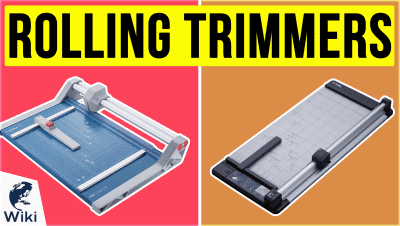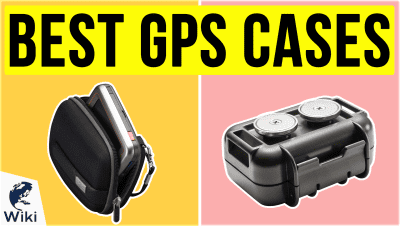7 Organizations And Resources For People With Disabilities
People with disabilities may face a variety of obstacles, but there's no reason their lives should have to be defined or impeded by them. Working valiantly to support those with handicaps, the organizations and resources listed here are committed to fostering accessibility, political change, and the right for all people to equitably participate in social life. This video was made with Ezvid Wikimaker.
7 Groups and Resources Supporting Disabled People
| Name | Mission |
|---|---|
| Facing Disability | Connect families dealing with spinal cord injuries with the life experiences of others, and provide medical information and resources |
| Coalition of Texans with Disabilities | Create a future where all Texans with all disabilities may work, live, learn, play, and participate fully in the community of their choice |
| Granite State Independent Living | Promote quality of life with independence for people with disabilities and seniors through advocacy, information, education, support, and transition services |
| Disability:IN | Collaborate with purpose to promote the full inclusion of people with disabilities, inspire accessible innovation for all, and foster cultures of inclusion |
| Pacific ADA Center | Build a partnership between the disability community and the general public by enhancing understanding of the Americans with Disabilities Act through education and technical assistance |
| Disability Integration Act | End institutional bias and provide seniors and people with disabilities home and community-based services as an alternative to institutionalization |
| Southeast ADA Center | Provide information, training, and guidance on the Americans with Disabilities Act and disability access tailored to the needs of business, government, and individuals at local, state, and regional levels |
Stories From Granite State Independent Living
What Is The Americans with Disabilities Act?
Signed into law on July 26, 1990, by President George H.W. Bush, the Americans with Disabilities Act prohibits discrimination and guarantees that people with disabilities have the same opportunities as everyone else when it comes to employment, commerce, and government participation. The ADAAA, or Americans with Disabilities Act Amendments Act, was signed into law in 2008 to further clarify the definition of "disability" as it pertains to the law. Title I of the ADA protects employees and job seekers from discrimination by private employers, labor unions, and state and local governments. However, the ADA states that these provisions regarding hiring only apply to employers with 15 or more employees. Other sections of the law deal with transportation, public accommodations, and telecommunications.
Disability Facts
- 1 in 4 adults in the United States have some type of disability
- The total civilian non-institutionalized population with a disability in the United States is 40,678,654
- 2 in 5 adults age 65 years and older have a disability
- 1 in 3 adults with disabilities between the ages of 18 and 44 had a health care need that went unmet within the past year because of the cost
- 37% of U.S. civilians with disabilities aged 18 to 64 have a job, compared to 77.2% for people without disabilities
- The median earnings over a 12-month period for the civilian non-institutionalized population aged 16 and over with earnings and a disability is $23,006
- 15% of school-age children have some degree of hearing loss
- Roughly 8 million people in the US have an intellectual disability, including 425,000 children
- There are more than 4 million veterans living with a service-connected disability
- Workers with a disability are more concentrated in service occupations (19%) than those with no disability (17.2%)
The Continued Fight For Disability Rights
In Depth
The social model of disability teaches us that it is not a person's impairment or difference that makes them disabled, but rather the barriers put before them by the way our society is organized. In order to remove those barriers, a number of organizations have come into existence to bring people together to fight for accessibility. This list, presented in no particular order, surveys a range of such groups across the United States.
At #1, Facing Disability is a non-profit organization for families dealing with a spinal cord injury. These injuries typically begin with a sudden traumatic blow to the spine that fractures, compresses, or dislocates some of the vertebrae, affecting feeling and movement. In order to help those newly dealing with the effects of such disabilities, the organization provides resources to connect them with the life experiences of others.
The group produces and hosts a number of videos, including interviews with experts on different spinal cord-related topics, as well as personal testimony from people who have lived with such injuries for a long time, whether they are disabled themselves or care for a disabled family member. There are also a number of text-based resources, offering guidance on subjects like employment and assistive technology.
There are also a number of text-based resources, offering guidance on subjects like employment and assistive technology.
#2 is Coalition of Texans with Disabilities. Founded in 1978, it is the largest and oldest member-driven cross-disability organization in the Lonestar State. Focusing on governmental advocacy, public awareness activities, and professional consulting, CTD works towards a future where all Texans may work, live, learn, play, and participate fully in the community of their choice.
The group's staff and members work with legislators, state agencies, and partner organizations to create public policy that protects or empowers Texans with disabilities. It engages the general public through events and presentations that focus on disability in a variety of social settings. It also leverages its expertise for consulting services offered to a variety of professional groups and businesses.
In the #3 spot, Granite State Independent Living is a nonprofit organization operating throughout New Hampshire. It has the mission of promoting quality of life with independence for people with disabilities and seniors through advocacy, information, education, support and transition services.
It has the mission of promoting quality of life with independence for people with disabilities and seniors through advocacy, information, education, support and transition services.
The group was founded in 1980 by three friends, all of whom were living with a disability, who wanted to overcome social barriers and the lack of available services. Working in local communities, today it assists New Hampshirites through home care services, community-based disability supports, and education and employment programs.
Coming in at #4, Disability IN is a nonprofit that provides resources on inclusion to businesses throughout the world. It draws on a network of more than 185 corporations in efforts to expand opportunities for people with disabilities across employment sectors. Formerly the US Business Leadership Network, the group emerged out of government efforts following the passage of the A.D.A.
The team works to combat the misperception that people with disabilities cannot work, as well as other barriers, such as unconscious bias, insufficient accessible technology, and non-inclusive supply chains. The group's NextGen Leaders program attracts college students and recent graduates with disabilities who have demonstrated talent and leadership in the STEM, finance and business fields.
The team works to combat the misperception that people with disabilities cannot work, as well as other barriers, such as unconscious bias, insufficient accessible technology, and non-inclusive supply chains.
For #5, we've got the Pacific A.D.A. Center, which is designed to build partnerships between people with disabilities and the business community to promote full and unrestricted participation in society through education and technical assistance. Part of a national network, it serves Arizona, California, Hawaii, Nevada, and the Pacific Basin.
The group provides information, problem solving assistance, and referrals for implementing the Americans with Disabilities Act. It conducts community outreach and disseminates instructional materials throughout its region via listserv messages, social media posts, and pen-and-paper and in-person methods. It also operates a hotline that offers technical assistance on A.D.A. guidelines.
#6 on our list is the campaign for the Disability Integration Act, a piece of legislation intended to address the issue that people who need long-term services and supports are often forced into institutions and lose their basic civil rights. A bipartisan and bicameral legislation, it was introduced in the Senate by Democrat Charles Schumer of New York and Republican Cory Gardner of Colorado; and in the House by Wisconsin Representative Jim Sensenbrenner.
A bipartisan and bicameral legislation, it was introduced in the Senate by Democrat Charles Schumer of New York and Republican Cory Gardner of Colorado; and in the House by Wisconsin Representative Jim Sensenbrenner.
The origins of the legislation lie in a 2013 report showing that unwanted institutionalization remains a serious problem for people with disabilities and seniors. That report recommended that Congress amend the A.D.A. to strengthen the law's integration mandate and clarify that all who are eligible under Medicaid have the right to a real choice in how they receive services and supports.
Wrapping things up at #7, we've got The Southeast A.D.A. Center. Like its West Coast partner organization described earlier, this group provides information, training, and guidance on the Americans with Disabilities Act and accessibility. With headquarters in Atlanta, Georgia, it oversees affiliates in Alabama, Florida, Georgia, Kentucky, Mississippi, North and South Carolina, and Tennessee.
For its education and training services, the center offers online courses, toolkits and training packages, access to national resources like conferences and certification programs, and events. It distributes relevant materials to members, such as court decisions, news digests, and scholarly papers. The organization also works closely with local institutions to help build capacity for accessibility initiatives.




















